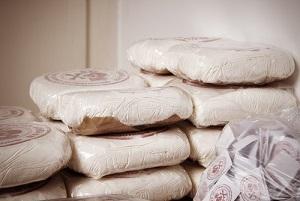 According to statistics compiled by the federal government, more than 90 percent of all criminal defendant plead guilty to the charges against them—or some variation of such charges in a plea deal—instead of going to trial. In some cases, pleading guilty may be the better option, as the defendant knows that he or she committed the crime of which he or she has been accused and by pleading guilty, the impact to the defendant’s future may be lessened. In other situations, however, including many drug cases, a suspect may plead guilty because he or she was led to believe that the evidence against him or her is overwhelming, even if he or she is not actually guilty. The defendant may be convinced that he or she stands no chance at trial and a plea agreement may seem like the only option.
According to statistics compiled by the federal government, more than 90 percent of all criminal defendant plead guilty to the charges against them—or some variation of such charges in a plea deal—instead of going to trial. In some cases, pleading guilty may be the better option, as the defendant knows that he or she committed the crime of which he or she has been accused and by pleading guilty, the impact to the defendant’s future may be lessened. In other situations, however, including many drug cases, a suspect may plead guilty because he or she was led to believe that the evidence against him or her is overwhelming, even if he or she is not actually guilty. The defendant may be convinced that he or she stands no chance at trial and a plea agreement may seem like the only option.
Field Drug Testing
One example of such potentially misleading evidence is the result of a field drug test. These tests are intended to use a chemical process to detect the presence of illicit substances and lead to thousands of arrests each year. To conduct a field drug analysis, a police officer will drop a sample of a seized substance into a pouch containing several chemicals, which are meant to change color to indicate that the substance is, in fact, an illegal drug. While many studies have supported the tests as accurate enough to establish probable cause for the officer to then make an arrest, a conviction requires proof beyond a reasonable doubt—a standard that these $2 test kits may not be capable of meeting.
The manufacturer of the test kits used in Las Vegas has acknowledged that their kits are meant to aid the process of investigating a drug crime, not to be used as the only evidence to convict a suspect. However, a local judge claimed that he and other judges in the area were never informed that there were any questions about the reliability of such tests. Meanwhile, of the more than 10,000 drug convictions in Las Vegas in the last several years, 99 percent were obtained through guilty pleas. Of those pleas, 70 percent were made at the first possible opportunity—at preliminary hearings before field tests could be retested by a more reliable lab.
Defense Attorneys Consider Taking a Stand
A committee of defense lawyers in Las Vegas has been formed and is tasked with looking for ways to challenge the widely accepted use of field drug tests in securing guilty pleas and convictions. Part of the concern is that these tests are often the only available evidence against a particular defendant, even though they are not technically admissible at trial in Las Vegas. That has not stopped prosecutors and law enforcement from using them during questioning and in preliminary hearings, encouraging a defendant to simplify the prosecution by pleading guilty.
The attorney group is weighing a number of options, including filing a broad motion seeking a ruling on the admissibility of the test results in preliminary hearings. Another possible approach would be to encourage defense lawyers to routine challenge the use of the tests in every case in which prosecutors attempt to use them. This option could push prosecutors to have the test results verified by a qualified laboratory, a consideration not currently required when using field test results.
Field Test Results in Connecticut
Here in Connecticut, field drug analyses are commonly used by law enforcement in the process of their initial investigation of a possible drug crime. Their admissibility in court, however, is a question that often depends on how such evidence is presented and may require additional hearings to verify the procedures and reliability of the results.
If you have been charged with a drug-related crime as the result of a field drug test, contact an experienced Hartford criminal defense attorney. Call the Woolf & Ross Law Firm, LLC, at 860-290-8690 for a confidential consultation regarding your case. We will help you protect your rights and your future.
Sources:
http://www.uscourts.gov/about-federal-courts/types-cases/criminal-cases
https://www.propublica.org/article/las-vegas-defense-lawyers-formal-challenge-field-tests-drug-prosecutions
https://www.jud.ct.gov/external/supapp/Cases/AROap/AP143/143AP391.pdf
 50 Founders Plaza
50 Founders Plaza

